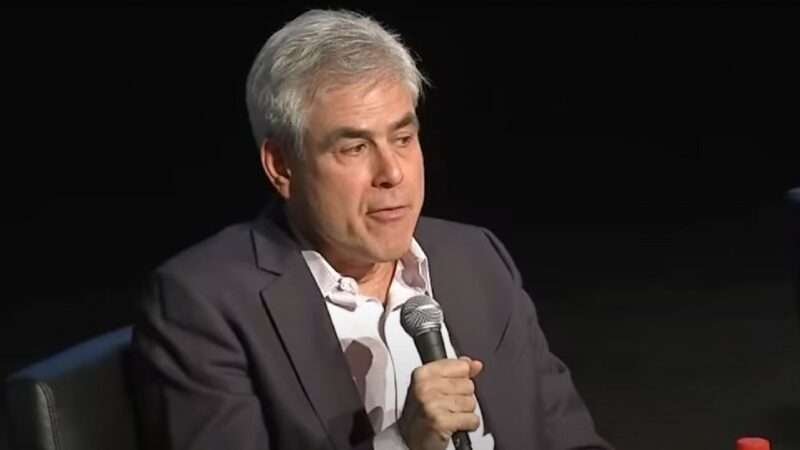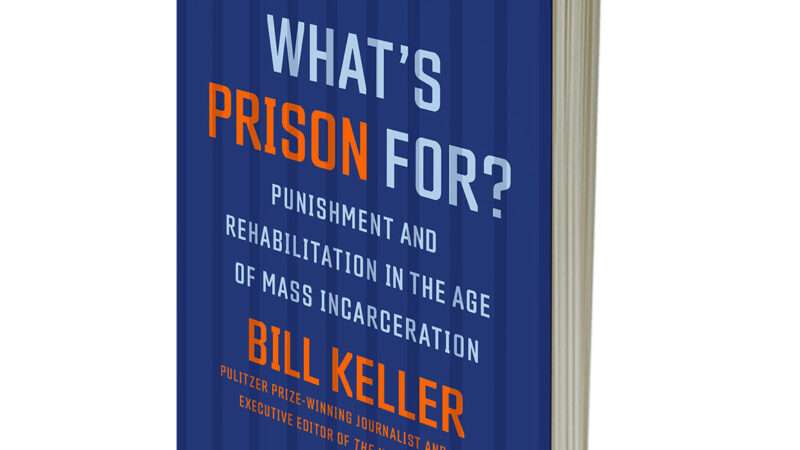It was probably inevitable that Jonathan Haidt, an academic long concerned about the politicization of academia, would eventually be caught up in the displacement of intellectual inquiry by ideological rigidity.
Last week the New York University (NYU) psychology professor announced that he would resign at the end of the year from the Society for Personality and Social Psychology, his primary professional association, because of a newly adopted requirement that everybody presenting research at the group’s conferences explain how their submission advances “equity, inclusion, and anti-racism goals.” It was the sort of litmus test against which he has warned, and which he sees as corroding institutions of higher learning.
“Telos means ‘the end, goal, or purpose for which an act is done, or at which a profession or institution aims,'” he wrote in a Sept. 20 piece published on the website of Heterodox Academy, an organization he cofounded that promotes viewpoint diversity on college campuses, and republished by the Chronicle of Higher Education. “The telos of a knife is to cut, the telos of medicine is to heal, and the telos of a university is truth.”
“The Society for Personality and Social Psychology (SPSP)—recently asked me to violate my quasi-fiduciary duty to the truth,” he added. “I was going to attend the annual conference in Atlanta next February to present some research with colleagues on a new and improved version of the Moral Foundations Questionnaire. I was surprised to learn about a new rule: In order to present research at the conference, all social psychologists are now required to submit a statement explaining ‘whether and how this submission advances the equity, inclusion, and anti-racism goals of SPSP.'”
Such diversity, equity, and inclusion (DEI) statements have proliferated at universities and in academic societies, he notes, even though “most academic work has nothing to do with diversity, so these mandatory statements force many academics to betray their quasi-fiduciary duty to the truth by spinning, twisting, or otherwise inventing some tenuous connection to diversity.”
But the SPSP requirement went a step further, dropping “diversity” in favor of “anti-racism,” a term frequently associated with Boston University’s Ibram X. Kendi, author of How to Be an Antiracist and other works. Among the book’s passages is a widely shared one highlighted by Haidt:
“The only remedy to racist discrimination is antiracist discrimination. The only remedy to past discrimination is present discrimination. The only remedy to present discrimination is future discrimination.”
That’s an “explicitly ideological” interpretation of social interactions, Haidt objects, along with prescribed remedies to which he has moral and professional objections. He believes individual members of SPSP should be free to adopt the sentiment themselves, but adherence shouldn’t be compelled.
“So I’m going to resign from SPSP at the end of this year, when my membership dues run out, if the policy on mandatory statements stays in place for future conventions,” he concludes.
Mandatory DEI statements became a concern well before Haidt’s run-in with the SPSP and the substitution of “anti-racism” for diversity.” Just weeks ago, Reason‘s Emma Camp noted that “in many American universities, prospective professors are now expected to include lengthy diversity, equity, and inclusion (DEI) statements in their job applications.”
A recent American Association of University Professors survey found that DEI criteria are included in consideration for tenure at 21.5 percent of colleges and universities, and at 45.6 percent of large institutions of higher education.
“In many cases, these policies threaten to restrict employment or advancement opportunities for faculty who dissent from the prevailing consensus on DEI-related issues of public and academic interest,” warns the Foundation for Individual Rights and Expression (FIRE). “These policies may even negatively impact faculty who broadly agree with their institution’s DEI values but disagree on some of the specifics, or who simply cherish the right to speak without compulsion.”
FIRE acknowledges that private institutions have the right to adopt any ideological requirements they wish (public institutions are bound by the First Amendment). But it says DEI mandates threaten the commitments to free speech and academic freedom that most universities espouse.
“Academics seeking employment or promotion will almost inescapably feel pressured to say things that accommodate the perceived ideological preferences of an institution demanding a diversity statement, notwithstanding the actual beliefs or commitments of those forced to speak,” agrees the Academic Freedom Alliance in a statement released last month.
Haidt, years ago, sounded the alarm that colleges and universities were compromising their intellectual mission with growing commitment to a particular set of political beliefs.
“I believe the conflict reached its boiling point in the fall of 2015 when student protesters at 80 universities demanded that their universities make much greater and more explicit commitments to social justice, often including mandatory courses and training for everyone in social justice perspectives and content,” he wrote in 2016. “Now that many university presidents have agreed to implement many of the demands, I believe that the conflict between truth and social justice is likely to become unmanageable.”
The conflict certainly became unmanageable for Haidt himself, who chose what he sees as the pursuit of truth over required affirmation that his work serves a political purpose. He’s still uncertain how his dispute with the SPSP will shake out, or the ultimate fate of academia writ large.
“I have gotten about a dozen supportive emails from other social psychologists, and no real criticism beyond a few psychologists on Twitter who, perhaps shaped by Twitter, go to great lengths to assume the worst about me and my motives for writing the essay,” Haidt told me by email. “I have the sense that there is a large generational split. Psychologists and academics who are older than me (I’m 58) seem uniformly supportive: they are all on the left, and the left used to be creeped out by loyalty oaths, whether administered by the McCarthyite right or the Soviet left. But young people on the left seem to be very comfortable requiring such pledges.”
Where SPSP stands on the matter can only be inferred from Its actions. Officials in the professional society acknowledged my query but hadn’t responded by deadline. As of now, everybody presenting research at the society’s upcoming conference will have to pledge that their work advances political goals.
The post Mandated Diversity Statement Drives Jonathan Haidt To Quit Academic Society appeared first on Reason.com.
from Latest https://ift.tt/itonT31
via IFTTT








